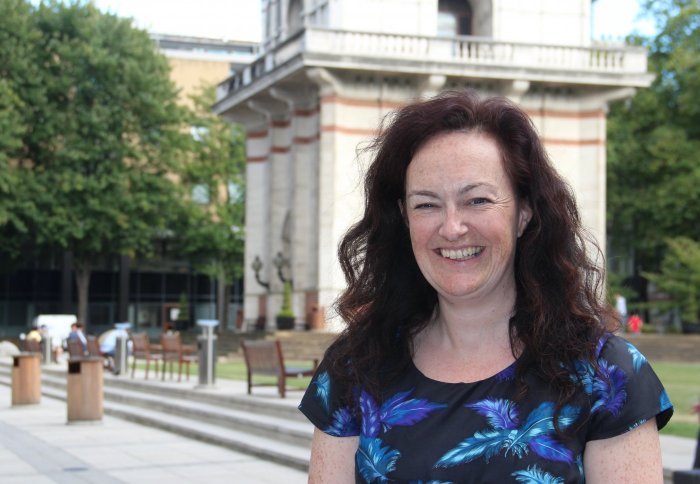Alumni celebrate 21 years of science communication at Imperial
by Kerry Noble

Melanie Smallman, Science Communication alumna
Imperial College London’s renowned Science Communication Masters course has celebrated 21 years of success with a special conference for alumni.
Imperial College London’s renowned Science Communication Masters course has celebrated its 21st Birthday with a special conference for alumni.
The course, which was the first of its kind in the UK when it launched in 1991, teaches science graduates how to engage and entertain the general public with research.
In the last 21 years around 600 students have graduated going on to take leading roles in museums, journalism, TV and radio production, and communication roles within major scientific organisations.
The unit currently offers two courses; one in science communication and one in science media production, which concentrates on science in TV, radio and film.
The 21st Birthday conference welcomed around 200 former students back to Imperial to debate and discuss the state of science in the media, how to engage young people in science and the future of science in museums and exhibitions.
The programme’s founder and current Director of the Massachusetts Institute of Technology Museum, Professor John Durant opened the celebrations. He discussed the changes he has seen in the field over the last two decades, for example the popularity of science club nights and cafés scientifique.
He said: “The one big change is that science communication is now embedded in research and in wider culture, and this is thanks in part to the Imperial Masters programme.”
Among those attending was Melanie Smallman who graduated in 1993. Melanie is Director of Think-Lab, a specialist science communications agency and has recently begun a PhD in Science and Technology Studies at University College London.
Reflecting on her experience, she said: “I was attracted to the course because of the amazing contacts in the field, as well as the skills it offered. But surprisingly it has been the academic underpinning that I've drawn on most strongly in my career since. More recently, when I've been recruiting for Think-Lab and our clients, it has been this combination of practical skills and theoretical underpinning that has made MSc science communication graduates stand out.
“Returning to academia after almost 20 years in science communication, I'm now really enjoying brushing up these skills."
Article text (excluding photos or graphics) © Imperial College London.
Photos and graphics subject to third party copyright used with permission or © Imperial College London.
Reporter
Kerry Noble
Department of Surgery & Cancer